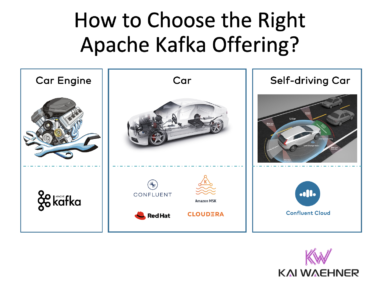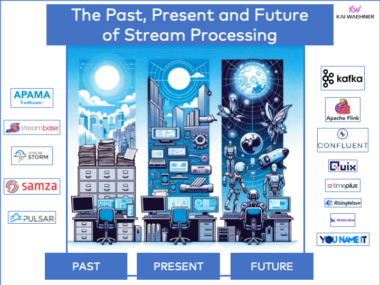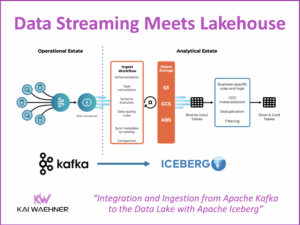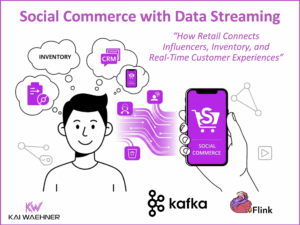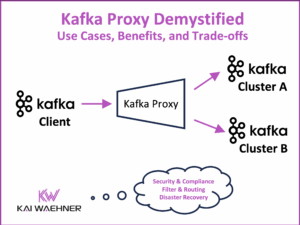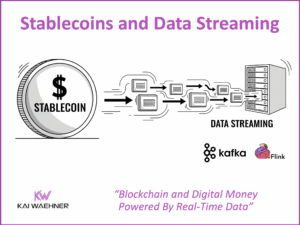Cloud Camp, 4th October 2010, Berlin
The Cloud-Camp was a free „Unconference“, which took place one day before the SOA / Cloud Symposium 2010 in Berlin, Germany. You can find more information about Cloud Camps at http://www.cloudcamp.org.
In the following, I want to tell you about my impressions from the Cloud Camp in Berlin.
Lightening Talks
The „Unconference“ startet with some 5-minute Lightening-Talks (similar to “Pecha Kucha“). Some interesting theses were presented, e.g.:
Misconceptions of Private Clouds
The idea of Cloud Computing is to pay only for resources which are actually used by oneself. This elasticity is a major advantage of Cloud Computing. But Private Clouds lose exactly this feature, because they are not able to increase or reduce resources quickly.
Of course, some exceptions should be mentioned, e.g. taking advantage of different time zones. Thus, resources may be shared between different geographical areas.
How quickly does Data in the Cloud become consistent?
It is very difficult to answer this question. Do you mean milliseconds, seconds or at least minutes? „Eventually Consistent“ is a characteristic, which is appearent in NoSQL databases. But sometimes, this is not sufficient, e.g. when doing a bank transaction. Other social web 2.0 platforms such as Facebook or Slideshare do not require any better consistency, so there it is sufficient.
SOA vs. Cloud
Or also:
Business-Perspective vs. IT-Perspective
Enterprise ARCHITECTURAL Model vs. Application DEPLOYMENT Model
Apple vs. Pear 🙂
Therefore, two questions about SOA and software-silos:
1) How to migrate SOA vs. Silo to the Cloud?
Answer: Silos is very hard, SOA is much easier
2) How to build SOA vs. Silo in the Cloud?
Answer: SOA is easier, but what ?!!? Why still build Silos in the Cloud?
Cloud-Unpanel
Some experts had to take a seat in the front to answer questions from other participants. Some (subjective) opinions:
Security-Issues? That discussion only exists because of a wrong conception of „cloud“! The cloud can be compared to outsourcing your data centers, which is already done successfully since years.
Legal Problems? Some precedences are necessary. The lawyers have to fight it out 🙂
Where does the data end up in the cloud? Serious vendors offer strict rules! E.g. Amazon offers different geographical areas such as US, Europe or Asia.
Breakout-Sessions
The Participants decided which topics are discussed in the main conference part (therefore the name „unconference“). I visited the following two tracks:
Amazon EC2:
– Amazon EC2 offers „Infrastructure as a Service (IaaS)“, i.e. it actually offers just the infrastructure
– 60 to 80 percent market share at IaaS, especially in Germany EC2 is a good choice because of less legal problems and because Amazon also has further „Platform as a Sevice (PaaS)”-offers
– Clearly more competitors in the US, e.g. Rackspace
– Main customer: especially start-ups and SMBs
– Attention: Automation of increasing or reducing the number of resources must be realized manually. PaaS (such as Google App Engine) is much easier to automate.
– Some disadvantages:
1) „Only“ nine servers such as Solaris are avaiable – if you need another one, that’s bad luck
2) Not suited for high I/O requirements
3) Several important SLAs are not clearly stated, e.g. how long it may take to add a new resource getting started
Automating Installation and Administration of IaaS
There are two questions to answer when introducing IaaS:
1) How can resources be configured automatically (e.g. install a App Server + Web App + DB + Config)
2) How do you communicate all avaiable nodes and their states to all available instances and mediators?
Solution: Develope it yourself – but it is a lot of effort. Or use a commercial product. But still several challenges have to be solved in the near future…
Conclusion:
A nice, free „unconference“ about Cloud Computing. About 100 participants discussed an afternoon. This was a good introduction for the „SOA Cloud Symposium“ conference starting the next morning (https://www.kai-waehner.de/blog/2010/10/06/soa-cloud-symposium-2010-in-berlin/)
Best regards,
Kai Wähner (Twitter: @KaiWaehner)

